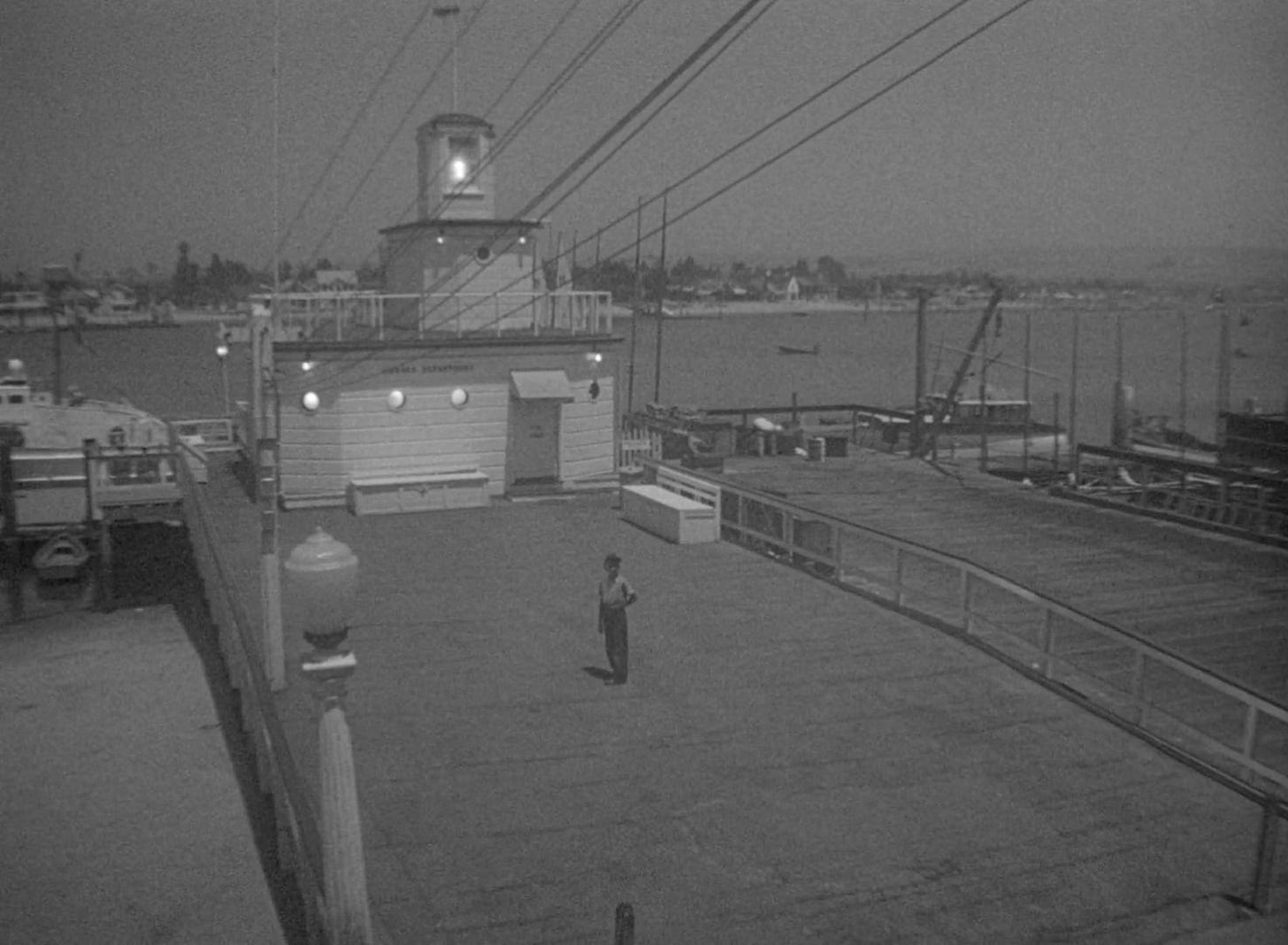Week 74: Socials Roundup
Posts from 03 June - 09 June 2024
Week 74 posts include two very different scenes from Under the Bridge (2024); The Breaking Point (1950); Mississippi Mermaid (1969) and Voices of a Distant Star (2002).
Under the Bridge
Under the Bridge 1.05 "When the Heat Comes Down" has a chilling and wonderful match cut.
Jo makes a threat and holds out a finger gun; the focus racks to her hand as she 'shoots' and there's a J-cut; the sound of a bang comes, but the cut which follows a split second after shows the sound comes from schoolbus doors opening.
The second and third elements which make this match cut so good and symbolic is the doors are around the place our eyes were resting on Jo's hand, and Jo is the first person out the doors, showing how her murderous intent is going to end up firing back onto her.
The Breaking Point
The final frame of The Breaking Point isn't a dramatic closeup of central character Harry (star John Garfield) or his crying wife. It's this wide of a young boy all alone on the dock as the lights come on behind him.
Earlier in the film his dad Wesley (Juano Hernandez) was killed, an indirect consequence of Harry's desperate actions, forced by poverty and circumstance, compounded by pride and stubbornness, complicated by love and loyalty.
This final shot drives home despite the femme fatale and the gunplay and John Garfield's bravado and perfectly draped jackets, this isn't a romantic adventure tale, it's a tragedy. And in a true tragedy, those who pay the highest, lifelong price are often the most innocent.
Mississippi Mermaid
Love this 'full circle' oner from Mississippi Mermaid (1969).
It starts with Louis carrying in a trunk, tilts up to show him in the mirror, stays as Julie walks in and interacts, follows her motion back to the patio where the landlady circles the table and sets coffee service down, holds on their conversation, then drifts back towards the trunk as Louis and Julie talk about it, holding to end the scene as Julie's laughter blends ominously with the birds cawing - a dramatic, fantastic way of telling us how significant it will all be!
Under the Bridge
The opening sequence of Under the Bridge 1.07 has a powerful, singular use of fourth wall break.
Rebecca (Riley Keough) is shown in news footage talking about the discrepancy between the two kids, Warren and Kelly, charged with murder. That segment continues unbroken as it's placed into a TV, with Cam's (Lily Gladstone) shoulder dirty in frame.
The audio continues over a reverse shot, where we see Cam surrounded by fellow cops, who have previously shown contempt for issues of race and class within the investigation and trial. Cam's dad, police chief Roy, reiterates his dismissal and leaves frame . . . then Cam leans forward and barrels the camera.


Because the TV has been established, and Cam's shifting her eyes from watching her dad leave the room, it plays as returning her gaze to the news segment. But from the start Cam has operated as a persistent reminder to examine personal and social conscience, as she struggles to fix and cling to her morals while pushing against racism and prejudice in her family and community. So her look breaks the fourth wall to ask the audience what we would do.
The scene doesn't end on that direct look, but Cam's slight nod is the impetus to cut back to the TV as Rebecca underlines the point of the scene: the question is about our humanity.
(If you want to dig further into the many ways and various methods of "talking directly to your audience" we and fellow writer Chas Fisher are doing a podcast series on that very thing here)
Voices of a Distant Star
I (Mel) adore the 'flare' coming from the train crossing lights in Voices of a Distant Star.
It's not only in the closeup; in the wide when the righthand red signal lights up, there's a corresponding red glow below it and on the far left of frame, even when the train passes through.



